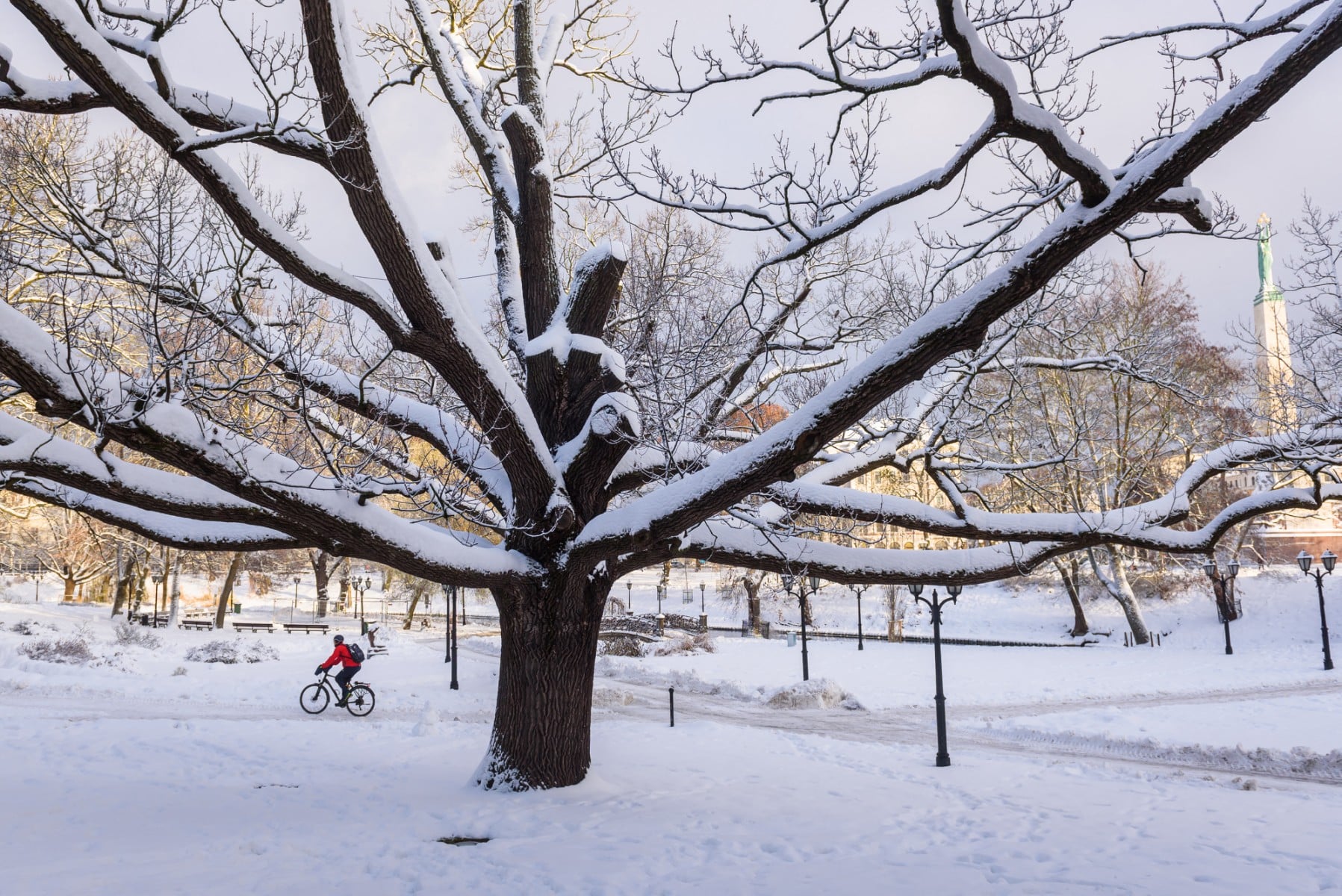
A person rides a bicycle because the park is snow coated on December 8, 2022 in Riga, Latvia. FILE PHOTO/Agence France-Presse
PARIS — A white Christmas might more and more turn out to be a nostalgic reminiscence because the Northern Hemisphere sees ever fewer snowy winter days because of local weather change, with Europe warming quickest, a report warned on Tuesday.
Pushed primarily by humanity’s mass burning of fossil fuels, that decline in days under freezing threatens tourism, the financial system and cultures, in accordance with Local weather Central.
Tuesday’s report by the US-based analysis institute argues that artifical local weather change had brought about greater than a 3rd of the 123 nations and almost half of the 901 cities studied to lose the equal of not less than per week’s price of days under freezing — zero levels Celsius or 32 levels Fahrenheit — over a decade.
READ: As Arctic local weather warms, even Santa runs in need of snow
The report’s evaluation relies on the each day minimal temperatures overlaying the months of December to February — roughly the span of the Northern Hemisphere winter — from 2014 to 2023.
Article continues after this commercial
These lows had been then in comparison with a simulation of a local weather with out the warming results of humanity’s widespread use of coal, oil and gasoline.
Article continues after this commercial
It discovered that local weather change had notably elevated the variety of winter days above zero in Europe, the world’s fastest-warming continent.
Denmark and the Baltic states had been the nations most affected.
READ: Christmas passes ‘like a typical day’ in Germany
“The snow, ice, and chilly temperatures that was hallmarks of the winter season are quick disappearing in lots of locations, threatening ecosystems, economies, and cultural traditions,” mentioned Local weather Central’s vp for science Kristina Dahl.
“Freezing winter days are essential for sustaining snow and ice for winter recreation and sports activities, replenishing the snowpack that provides freshwater sources, and sustaining plant, animal, and bug life cycles,” Dahl added.
Chilly climate helps to manage populations of disease-carrying bugs reminiscent of mosquitoes and ticks, whereas shorter winters encourage the unfold of pollen — and subsequently allergy symptoms.
The examine additionally warned that hotter winters can also have an effect on agriculture, notably the cultivation of fruits which require extended cool durations reminiscent of apples and peaches.

